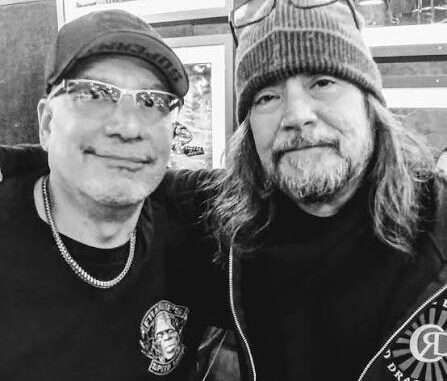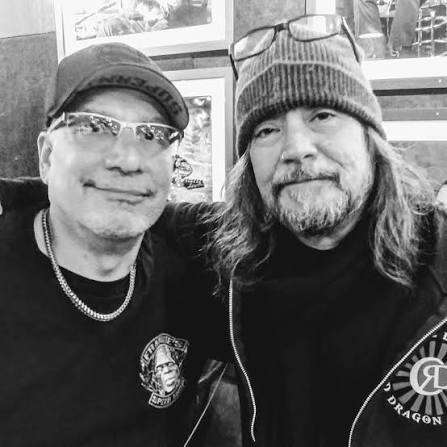
Jake E. Lee, the enigmatic guitarist who helped reshape Ozzy Osbourne’s sound in the mid-1980s, recently revisited the past in a candid interview with *Ultimate Guitar*. As the founder of Red Dragon Cartel today, Jake looked back on his departure from Ozzy’s band and offered surprising admiration for the man who replaced him: Zakk Wylde.
What emerged was not a bitter tale of rivalry, but a deep reflection on timing, talent, and the evolution of Ozzy’s music through different guitar eras. With 60s rock legend professionalism and honesty, Jake painted a picture of mutual respect between two of heavy metal’s greatest contributors.
Jake’s tenure with Ozzy Osbourne was marked by two powerful albums—*Bark at the Moon* (1983) and *The Ultimate Sin* (1986). He stepped into a nearly impossible role, following the tragic loss of Randy Rhoads, yet he forged his own identity through melodic fire and unconventional phrasing.
Fans remember songs like *Bark at the Moon* and *Shot in the Dark*, built on Jake’s dark, textured riffs. Yet, when he was replaced in 1987 by a young newcomer named Zakk Wylde, many assumed bitterness would linger. Instead, Jake now speaks with remarkable clarity about why Zakk’s entrance was not only inevitable, but correct.
“I think Zakk’s an incredible guitar player,” Jake revealed, admitting that while he jokes about Wylde’s heavy use of pinch harmonics, he respects the uniqueness of his sound. With a laugh, he said, “I have a little bit of a problem with his pinch harmonics… which everybody does. But apparently, he likes them and that’s part of his playing.” Behind the humor lies truth—Jake sees Zakk not as a rival, but as an artist whose strengths complemented Ozzy at the right moment.
For Jake, one defining moment of appreciation came from hearing *No More Tears*, a 1991 Ozzy classic. “He plays slide in the verse. I never would have thought of that,” Jake admitted. “It’s so unique and awesome. I think only he could have ever done that.” This confession is rare in rock history, where ego often blocks praise. But Jake was honest: Zakk did things he wouldn’t have done—and that made the legacy stronger.
However, Jake strongly maintains that Zakk Wylde would *not* have been the right man immediately after Randy Rhoads. “I don’t think his style or even his look would work right away,” he reflected. “Ozzy needed something different but as good in a different way. At least visually, I was completely different from Randy. And playing-wise, I was fairly different too.” Jake saw himself as a necessary contrast—a way for Ozzy to prove he could survive beyond the tragedy of losing Randy. “Ozzy had to establish himself, not depending on any one style or guitarist,” he added.
And then came the most honest confession of all: “I was hoping a little piece of me was hoping No Rest for the Wicked was gonna kind of suck,” Jake laughed. “You want to say, ‘Oh look, he’s not as good without me.’ But it was an incredible record. And kudos to Zakk, he did a great job.” Instead of jealousy, Jake found peace in knowing that the music remained powerful.
Ultimately, Jake E. Lee sees his role in Ozzy’s history with clarity: “I was the perfect guy to come in after Randy. And I do think Zakk was the perfect guy to come in after me.” It is rare in rock for legends to speak of each other with such balance and grace. Jake acknowledges that each guitarist brought something essential—Randy brought innovation, Jake brought a shift in tone, and Zakk brought a new era of heaviness and loyalty.
Today, as Jake pursues fresh creativity through Red Dragon Cartel, his reflections prove something profound: true legacy is not about being *the only great*, but being *part of greatness*. By praising Zakk Wylde, Jake E. Lee does not diminish his own achievements—he solidifies them. Because only a secure artist can applaud the one who followed. In heavy metal lore, few guitar lineages are as respected as Ozzy’s, and Jake E. Lee stands firmly, proudly, as a vital chapter between brilliance and brutality.
Leave a Reply